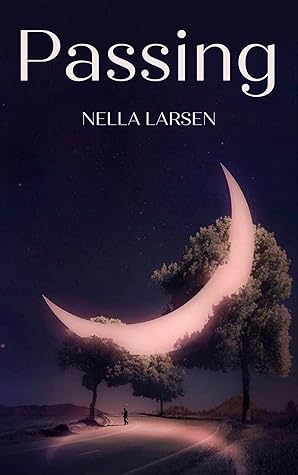More on this book
Community
Kindle Notes & Highlights
She wished to find out about this hazardous business of “passing,” this breaking away from all that was familiar and friendly to take one’s chance in another environment, not entirely strange, perhaps, but certainly not entirely friendly. What, for example, one did about background, how one accounted for oneself.
They were Bob Kendry’s aunts. He had been a son of their brother’s, on the left hand. A wild oat.
she began to wonder just what had possessed her to make her promise to find time, in the crowded days that remained of her visit, to spend another afternoon with a woman whose life had so definitely and deliberately diverged from hers; and whom, as had been pointed out, she might never see again.
it came to her that Clare had omitted to mention her marriage name. She had referred to her husband as Jack. That was all. Had that, Irene asked herself, been intentional?
For Gertrude too had married a white man, though it couldn’t be truthfully said that she was “passing.” Her husband—what was his name?—had been in school with her and had been quite well aware, as had his family and most of his friends, that she was a Negro. It hadn’t, Irene knew, seemed to matter to him then. Did it now, she wondered. Had Fred—Fred Martin, that was it—had he ever regretted his marriage because of Gertrude’s race? Had Gertrude?
Irene admitted, a shade reluctantly, that it arose from a feeling of being outnumbered, a sense of aloneness, in her adherence to her own class and kind; not merely in the great thing of marriage, but in the whole pattern of her life as well.
I’m afraid. I nearly died of terror the whole nine months before Margery was born for fear that she might be dark.
They don’t know like we do, how it might go way back, and turn out dark no matter what color the father and mother are.”
Tears ran down her cheeks. Her sides ached. Her throat hurt. She laughed on and on and on, long after the others had subsided. Until, catching sight of Clare’s face,
John Bellew gave a short denying laugh. “You got me wrong there, Mrs. Redfield. Nothing like that at all. I don’t dislike them, I hate them. And so does Nig, for all she’s trying to turn into one. She wouldn’t have a nigger maid around her for love nor money. Not that I’d want her to. They give me the creeps. The black scrimy devils.”
John Bellew or of Clare. That even at this remote date the memory of the man’s words and manner had power to set her hands to trembling and to send the blood pounding against her temples did not seem to her extraordinary.
Why had she allowed him to make his assertions and express his misconceptions undisputed? Why, simply because of Clare Kendry, who had exposed her to such torment, had she failed to take up the defense of the race to which she belonged?
for fear that that defense might in some infinitesimal degree lead the way to final discovery of her secret. She had toward Clare Kendry a duty.
Irene understood the need for that—as that Clare should have doubted her discretion, implied that she might not be cautious in the wording of her reply and the choice of a posting box.
It was as if the thought of any friend of John Bellew’s going to a Negro dance was to her the most amusing thing in the world.
You don’t know, you can’t realize how I want to see Negroes, to be with them again, to talk with them, to hear them laugh.”
“Not on our side, Hugh. It’s easy for a Negro to ‘pass’ for white. But I don’t think it would be so simple for a white person to ‘pass’ for colored.”
“I’ll drop you first and then run Clare down.” And that he had been doubtful of her discretion when she had explained to him that he wouldn’t have to bother because she had asked Bianca Wentworth to take her down with them.
Beyond the aesthetic pleasure one got from watching her, she contributed little, sitting for the most part silent, an odd dreaming look in her hypnotic eyes.
Her visits were undecided and uncertain, being, as they were, dependent on the presence or absence of John Bellew in the city.
which every mental vision of Clare, of Brian, brought with them. She could not, she would not, go again through the tearing agony that lay just behind her.
Brian, too, had withdrawn. The house contained his outward self and his belongings. He came and went with his usual noiseless irregularity. He sat across from her at table. He slept in his room next to hers at night. But he was remote and inaccessible. No use pretending that he was happy,
But she shrank away from the idea of telling that man, Clare Kendry’s white husband, anything that would lead him to suspect that his wife was a Negro. Nor could she write it, or telephone it, or tell it to someone else who would tell him. She was caught between two allegiances, different, yet the same. Herself. Her race.
After the boys had gone up to their own floor, Irene said suavely: “I do wish, Brian, that you wouldn’t talk about lynching before Ted and Junior. It was really inexcusable for you to bring up a thing like that at dinner. There’ll be time enough for them to learn about such horrible things when they’re older.”
she was aware that, to her, security was the most important and desired thing in life.
Strange that she couldn’t now be sure that she had ever truly known love. Not even for Brian.


